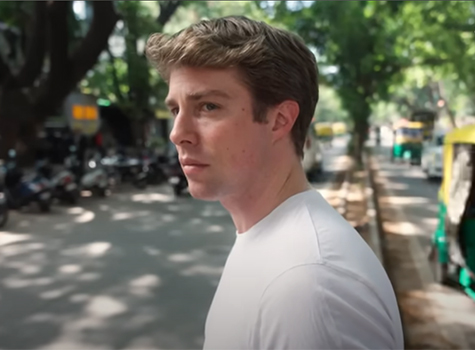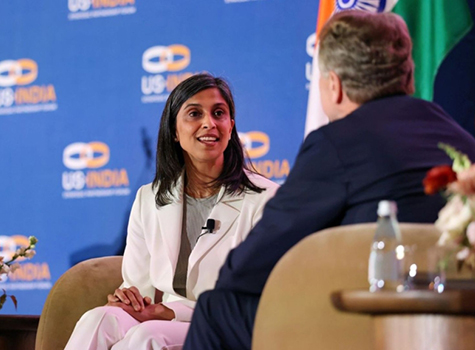By Samir Shukla

A World of Three Zeros
The New Economics of Zero Poverty, Zero Unemployment, and Zero Net Carbon Emissions
Author: Dr. Muhammad Yunus
(Public Affairs Books)
Dr. Yunus is the inventor of microcredit, first launched in his native Bangladesh with his innovative Grameen Bank in 1976. The Nobel Peace Prize winner has spent four decades working to improve the plight of the poor and has written several books. His latest book, A World of Three Zeros, hones in on a concept that reconceptualizes capitalism from its current form into something more altruistic, which he calls social business. He writes about ways to take capitalism to its more honorable level where singular profit seeking is not the prime motive, but rather businesses can work to create better societies and help humanity and the planet along the way.
He is not talking about socialism. He posits that capitalism is not a bad system, but its engine is broken. In its contemporary form it leads to inequality, unemployment, and environmental degradation. He writes about unleashing new models of social businesses and enterprises that unleash altruism as a force to match the powerful self-interests that currently guide capitalism. In essence, social businesses are designed to serve human needs rather than accumulate wealth, while not forsaking profits or returns on investment.
He writes, “The trend toward ever-increasing wealth concentration is dangerous because it threatens human progress, social cohesion, human rights, and democracy. A world in which wealth is concentrated in a few hands is also a world in which political power is controlled by a few and used by them for their own benefit.”
In essence, social business models can help remove hurdles to help the unbanked and low income people into participating as entrepreneurs and small business owners.
He also makes cogent points about reducing regulations and simplifying laws, while using technology, to help the poor and low income people to become entrepreneurs. His ideas and philosophy are compelling and will take time but, as he argues, involving young people is crucial in this endeavor. He also makes a case for working to achieve net zero carbon emissions, as climate change affects poor people more.
Yunus makes intriguing points and gives examples of the slowly burgeoning social business models.
He cites that global companies like McCain, Renault, Essilor, and Danone have gotten involved with this new economic model through their own social action groups. These models are helping poor people, especially women, to start businesses from Bangladesh to France as well United States.
His succinctly writes about the shortcomings of traditional banking systems that deny services to those who need them most—the world’s poorest people. This fact is made worse by the other related dilemmas: “lack of institutional services, lack of clean drinking water and sanitary facilities, lack of health care, inadequate education, substandard housing, no access to energy, and neglect in old age.”
The downsides of capitalism don’t just affect developing nations. “In my global travels, I’ve found that low-income people in the world’s richest nations are suffering from many of the same problems.”
Yunus says he is a proponent of free markets and that capitalism is not an enemy, but it has to be reformed in order to bring opportunities to all. “Capitalism has indeed stimulated innovation and economic growth. But in a world of skyrocketing inequality, more and more people are asking, ‘Does the invisible hand produce its benefits for everybody in the society?’ The answer seems obvious. Somehow the invisible hand must be heavily biased toward the richest—otherwise, how could today’s enormous wealth concentration continue to grow?”
He adds, “I don’t think rich people became rich because they are bad people. Many of them are good people who simply made use of the existing economic system to reach the top of the ladder. And many of them share the widespread feeling of uneasiness over living in a world that is sharply divided between rich and poor.”
He notes, “One piece of evidence is the large sums of money that people donate to charitable causes, either in the form of individual gifts to nonprofit organizations or through philanthropic foundations. People give away hundreds of billions of dollars to charities every year. Even most corporations, while their leaders may pay allegiance to the doctrine that profit maximization is the only valid function of business, siphon off a percentage of their profits to community service projects and charitable gifts in the name of ‘social responsibility’.”
He concludes, “Charity and welfare programs are well-intended efforts to lessen the damage done by the capitalist system. But a real solution requires a change in the system itself. A new way of thinking is needed, a redesigned economic engine.”
Yunus’ redesigned economic engine has three basic elements. “First, we need to embrace the concept of social business—a new form of enterprise based on the human virtue of selflessness. Second, we need to replace the assumption that human beings are job seekers with the new assumption that human beings are entrepreneurs. Third, we need to redesign the entire financial system to make it work efficiently for the people at the bottom of the economic ladder.”
Of course, achieving zero anything (as the subtitle of the book offers) is a tall order, but his intertwined ideas are succinct and can be small steps toward betterment of people.
For more details on Yunus’ work visit, muhammadyunus.org/



